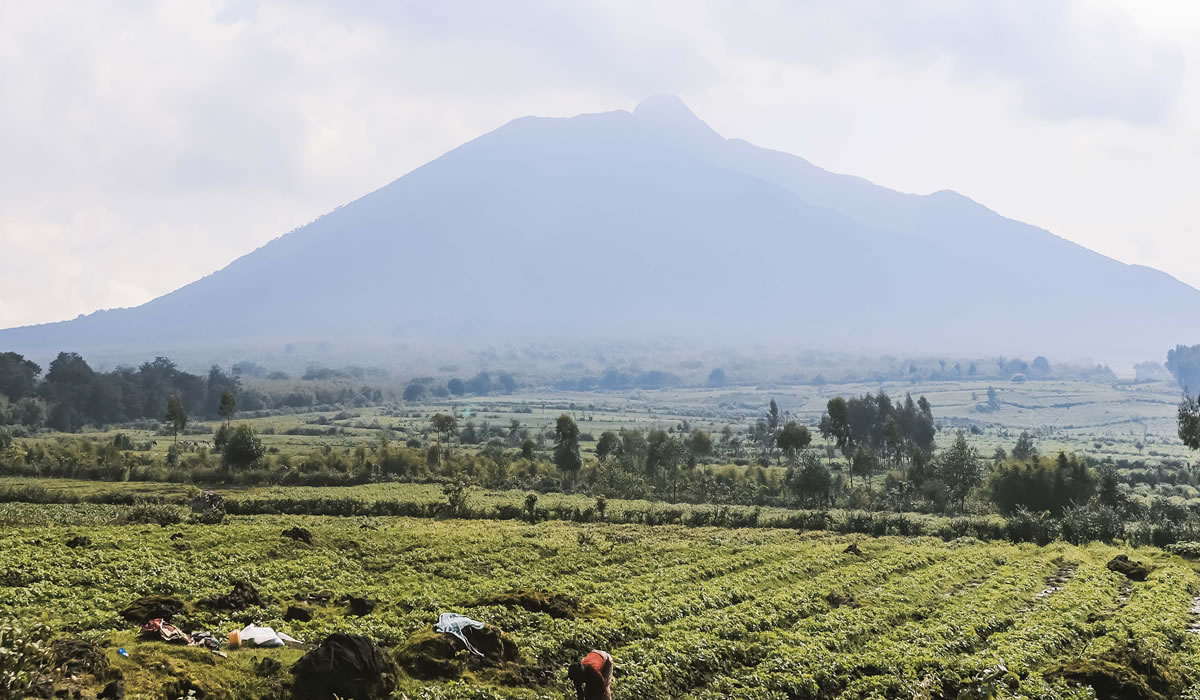Rwanda has emerged as one of Africa’s most sought-after travel destinations. Famous for its rolling green landscapes, warm hospitality, and incredible biodiversity, this small but remarkable country offers far more than many travelers expect. Over the last few decades, Rwanda has transformed into a safe, accessible, and thriving hub for both luxury travelers and adventurous explorers. From gorilla trekking in the misty Volcanoes National Park to cultural experiences in Kigali, Rwanda’s capital, the country blends natural beauty with modern progress, making it an essential stop for anyone exploring East Africa. Below are some key facts that highlight Rwanda as a unique tourist destination.

-
A Small Country with Big Attractions
Despite covering just over 26,000 square kilometers, Rwanda offers an impressive range of attractions that rival much larger nations. Its size actually makes it easier for visitors to explore multiple destinations within a single trip. Travelers can start their journey in Kigali, visit Volcanoes National Park for gorilla trekking, relax by the shores of Lake Kivu, and then head south to Nyungwe Forest or Akagera National Park without long, exhausting journeys. This compact geography is one of Rwanda’s strengths as a tourist destination.
-
Kigali, Africa’s Cleanest and Safest Capital
Any visit to Rwanda often begins in Kigali, a city that consistently ranks among the cleanest and safest in Africa. The capital reflects Rwanda’s vision for modern development with its well-maintained roads, orderly streets, and vibrant neighborhoods. Kigali offers a mix of history and contemporary attractions. The Kigali Genocide Memorial provides a moving account of Rwanda’s past, while bustling markets, art galleries, and high-end restaurants showcase the country’s forward-looking spirit. Tourists often describe Kigali as a city that feels welcoming, organized, and surprisingly cosmopolitan.
-
World-Famous Gorilla Trekking
Rwanda is most famous for being one of the few places on earth where travelers can encounter endangered mountain gorillas in their natural habitat. Volcanoes National Park, located in the northern part of the country, is home to around one-third of the world’s remaining mountain gorillas. Guided treks take visitors deep into misty forests to observe these gentle giants up close. The experience of watching a gorilla family interact, from playful juveniles to powerful silverbacks, is often described as life-changing. Gorilla trekking permits are limited to protect the species and their habitat, which adds to the exclusivity of the experience.
-
Beyond Gorillas – Diverse Wildlife
Although gorilla trekking dominates the headlines, Rwanda offers much more for wildlife enthusiasts. Akagera National Park, on the country’s eastern border, is a restored savanna ecosystem where visitors can enjoy classic safari experiences. The park is home to the “Big Five” – lions, elephants, buffaloes, leopards, and rhinos – along with a variety of antelope species, giraffes, zebras, and hundreds of bird species. Meanwhile, Nyungwe Forest National Park in the southwest is famous for chimpanzee tracking and its canopy walk, where tourists can walk high above the forest floor on a suspension bridge with breathtaking views.
-
Scenic Landscapes
Rwanda’s nickname, the “Land of a Thousand Hills,” is no exaggeration. The country’s landscapes are dominated by rolling hills, lush green valleys, and volcanic mountains. Travelers are treated to stunning vistas at almost every turn. Lake Kivu, one of Africa’s Great Lakes, offers sandy beaches, tranquil waters, and charming lakeside towns like Gisenyi and Kibuye, making it a perfect place to relax after a safari or gorilla trek. The Virunga Mountains, shared with Uganda and the Democratic Republic of Congo, provide dramatic scenery that attracts hikers and photographers alike.
-
Rich Cultural Heritage
Rwanda’s cultural heritage is just as compelling as its natural wonders. The country is home to a diverse range of traditions, music, and dance forms that continue to play a central role in daily life. The Intore dance, known for its colorful costumes and energetic movements, is a cultural highlight for many visitors. Tourists can also visit local communities to learn about traditional crafts, farming methods, and daily life. Rwanda’s cultural experiences are often integrated into safari itineraries, ensuring travelers enjoy both wildlife and human connections during their stay.
-
A Story of Resilience
One of Rwanda’s most remarkable qualities is its story of resilience and recovery. The 1994 genocide against the Tutsi left deep scars, but Rwanda has since rebuilt itself into a model of stability, unity, and progress. The country now focuses heavily on peace, reconciliation, and sustainable development. For tourists, this transformation is both inspiring and humbling. Visiting the Kigali Genocide Memorial or local reconciliation villages allows travelers to understand Rwanda’s history and admire the strength of its people. This story of resilience adds a powerful dimension to the tourism experience.
-
Focus on Sustainability and Conservation
Rwanda has positioned itself as a leader in sustainable tourism. The government strictly regulates wildlife tourism, limiting the number of visitors in sensitive ecosystems to reduce environmental impact. Revenue from gorilla trekking and other activities is shared with local communities, giving residents a direct benefit from conservation. Eco-lodges and luxury camps across the country are designed with sustainability in mind, offering comfort while minimizing environmental footprints. This focus ensures that tourism in Rwanda contributes positively to both people and nature.
-
Accessibility and Connectivity
Rwanda’s central location in East Africa makes it a convenient hub for regional travel. Kigali International Airport is served by multiple international airlines, connecting the country with Europe, the Middle East, and other African destinations. RwandaAir, the national carrier, has expanded routes to make the country even more accessible. The country also benefits from well-maintained roads that link its national parks and major towns, making overland travel smooth and efficient compared to many other African destinations.
-
A Safe Destination for Tourists
Safety is often a major concern for travelers, but Rwanda has developed a strong reputation as one of Africa’s safest countries. The government places a high priority on security, and crime rates are among the lowest on the continent. Tourists often report feeling comfortable traveling around the country, even at night. Combined with the warmth and friendliness of the Rwandan people, this sense of safety contributes greatly to the country’s growing popularity among international visitors.
-
Unique Experiences for Luxury Travelers
Rwanda has quickly become a hotspot for luxury tourism. Exclusive lodges operated by international and local brands provide world-class accommodation in prime locations, often with direct views of gorilla habitats or lakeside landscapes. These properties combine modern luxury with eco-friendly practices and local cultural design, creating unforgettable experiences. From helicopter transfers to private gorilla treks and fine dining in the wilderness, Rwanda caters to travelers seeking premium, personalized adventures.
-
A Year-Round Destination
Thanks to its equatorial location and temperate climate, Rwanda is a year-round travel destination. The country has two rainy seasons and two dry seasons, but even during the rains, wildlife viewing and gorilla trekking remain possible. The dry seasons, from June to September and December to February, are considered the best times to visit. However, fewer crowds during the rainy seasons can provide a more private and unique experience for adventurous travelers.
-
Birdwatcher’s Paradise
For birdwatchers, Rwanda is a hidden gem. The country is home to over 700 bird species, including numerous Albertine Rift endemics. Nyungwe Forest and Akagera National Park are particularly rich in birdlife, attracting enthusiasts from around the world. From the colorful Rwenzori turaco to rare shoebill storks, Rwanda offers rewarding experiences for both amateur and professional birders.
-
Culinary Experiences
Rwandan cuisine offers visitors a taste of the country’s agricultural bounty. Traditional dishes often include beans, sweet potatoes, cassava, and plantains. Lake Kivu’s freshwater tilapia is a popular delicacy, while Rwanda’s rich coffee and tea culture is internationally recognized. Many lodges and restaurants now blend traditional flavors with international culinary styles, offering gourmet meals that reflect Rwanda’s growing status as a luxury destination.
Rwanda may be small in size, but as a tourist destination, it is vast in its offerings. From gorilla trekking in misty mountains to cultural encounters in vibrant communities, from luxury lodges to pristine natural landscapes, the country delivers an experience that is both authentic and world-class. Its story of resilience, commitment to sustainability, and focus on quality tourism have earned Rwanda a special place on the global travel map. For travelers seeking a destination that combines adventure, culture, comfort, and inspiration, Rwanda truly stands out as one of Africa’s most remarkable gems.

